Over the past decade, the MedTech industry has been growing at an exponential rate.Because of this high amount of growth, companies and startups within this industry are returning favorable profits to investors, which ensures that these investors continue providing funding to the industry. Many early-stage MedTech startups are being acquired by larger firms, which is leading to the creation of numerous innovations that are taking the healthcare industry by storm.
The ever-growing nature of the MedTech industry means that advancements are being made on a continual basis. Because of these advancements, healthcare is becoming more effective, more affordable, and more accessible for people all around the world. From AI technology to needle-less diabetes care, the most recent innovations within the MedTech industry have already proven to be highly effective at delivering quantifiable results to people in need.
While there are an array of innovations that have been developed over the past year, the following provides a comprehensive view of 11 MedTech innovations that are defining the industry in 2019.
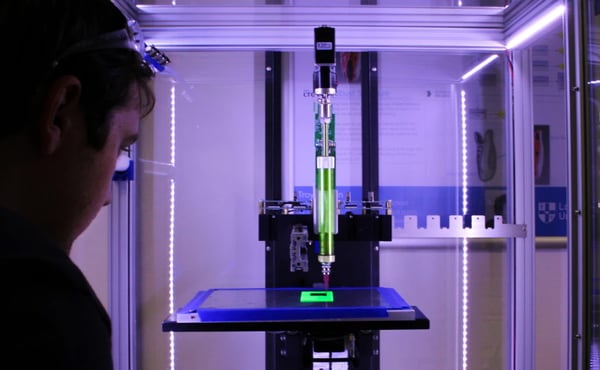
11. 3-D Printing in Healthcare
Over the past decade, 3D printing has transformed from a niche process considered to be suitable only for the production of prototypes into an exceedingly popular tool for the creation of an array of different technologies across numerous industries. When looking specifically at the healthcare and MedTech industries, 3D printing has quickly become one of the most popular technologies for new startups as well as established corporations. In recent years, these printers have been used for the creation of artificial joints that can be administered during surgery as well as patient-specific implants, the latter of which includes everything from shoulder implants to hip implants.
Prosthetics that are produced with 3D printing have also proven to be very popular since they can accurately match the measurements of each individual down to the millimeter. A more recent usage of 3D printing within the MedTech and healthcare industries involves printing pills that contain several medications, the first of which was approved by the FDA in 2015. It's estimated that 2019 is the year in which 3D printing will be a primary tool in around one-third of all surgical procedures that involve implanted or prosthetic devices.
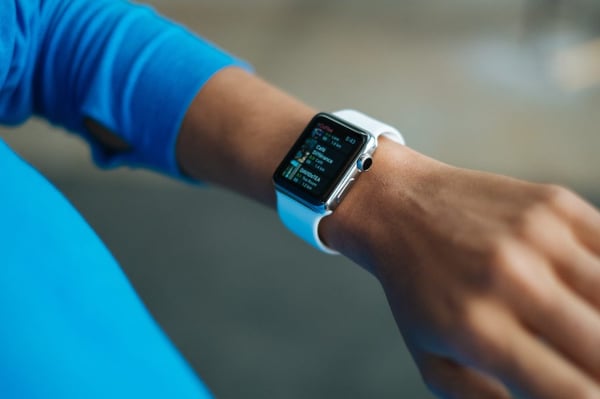
10. Wearable Technology & Health Monitoring
A highly beneficial innovation that's set to define the MedTech industry in 2019 and beyond is wearable technology and health monitoring. These wearable devices were first introduced to the market over the past few years. Since this introduction, they have grown exponentially in popularity. The advent of wireless Bluetooth technology back in 2000 has allowed for the creation of this technology, which can provide real-time data to smartphones via easy-to-use applications. These devices can monitor everything from a person's physical fitness and sleeping patterns to their heartbeat and steps, which allows such technology to be used for a variety of medical and health purposes.
This wearable technology is designed to help individuals combat such conditions as cardiovascular disease and diabetes. Among the largest companies to invest in wearable technology is Apple, which was displayed with the release of the Apple Series 4 Watch in 2018 that comes equipped with an ECG. The inclusion of an ECG has helped owners of the watch detect dangerous heart conditions earlier than is normal. Other popular pieces of wearable technology include the TempTraq, Aira, and iTBra.
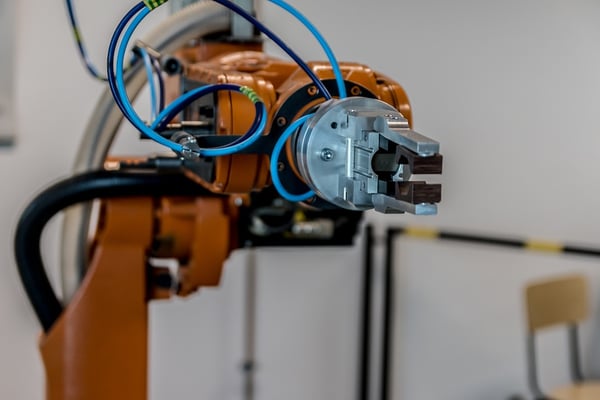
9. Robotic Surgery & Operating Assistance
In recent years, robotic surgery and operating assistance have been extremely useful within the MedTech industry. These machines are predominantly applied to minimally-invasive surgical procedures, which provides patients with the opportunity to receive a life-saving surgery that doesn't come with as many risks as something like open surgery. The usage of robotic surgery helps with control, flexibility, and precision during the procedure at hand, which lessens the chances that a mistake is made.
While surgeons can already perform highly complex procedures with robotic surgery, it's believed that advancements in augmented reality will soon allow the operating surgeon to view essential details about the patient while the procedure is being performed, which should increase the success rate of these treatments. At the moment, this technology enhances a surgeon's skills and assists them during surgical procedures. The main companies that specialize in robotic surgery and operating assistance include Intuitive Surgical, Microbot Medical, and Verb Surgical.

8. Blockchain & Healthcare
If you've never heard of it before, blockchain is a very popular technology that is most famously used to exchange information with others through the cryptocurrency known as Bitcoin. This technology is a type of independent and permanent database that can exist in a variety of locations and is shared by different communities. Unlike a client-server database where a website owner controls access to the website, blockchain is essentially supported and operated by a vast community of people. Over the past few years, companies have begun to implement blockchain into healthcare in some unique ways.
Many individual healthcare companies are using blockchain to allow patients to have easy access to their healthcare records while also keeping this medical data secure. The main benefits provided by blockchain with healthcare are found in medical records, regulatory compliance, and clinical trial records. The end goal of this technology is for health records to be decentralized and independent through blockchain instead of being controlled by different EMRs. By using this technology, doctors and patients would have easy access to pertinent healthcare records instead of needing to search through multiple facilities and systems to find the necessary data.

7. Payer-Provider Analytics & Data Tools
Among the top MedTech innovations that are set to define the industry in 2019 are tools for payer-provider analytics and data. These tools make it easier for physician practices to coordinate with the appropriate insurance companies when necessary, which is very important when one healthcare professional is making a referral to another. Let's say that you suffer a severe sprain to your ankle and pay a visit to your primary physician. The damage could be so severe that your physician wants to refer you as a patient to a reputable specialist who can provide you with more effective and accurate treatment solutions. While your primary physician would likely be in-network, which means that your visits are covered by your insurance, it's possible that the specialist they refer you to would be out-of-network, which means that you would be required to pay a substantial sum of money.
With this data software, healthcare organizations are able to automatically determine the best referral for the patient based on claims data and analytics provided by insurance companies. The doctor making the referral will have complete visibility to the possible referral network, all in-network locations, the proximity to the patient, accepted insurances, and even information about the experience of the doctor. These tools have already proven to be very successful within the healthcare industry.

6. AI Technology
While artificial intelligence remains in its relative infancy, it has already become a driving force for innovation within the MedTech industry. Artificial intelligence involves the ability for machines to learn, adapt, and evolve from experience much in the same way that a human can. In regards to the MedTech and healthcare industries, AI technology is already being used to monitor health statuses, schedule appointments based on symptom severity, and notify nurses instantly about notable changes in a patient's health.
Among the most notable applications of AI technology in the MedTech industry comes from Cerebro, which offers a solution that's designed to make staffing challenges easier to overcome. All throughout the day, hospitals require well-trained clinical staff to come in and help their patients, which is typically handled by a staffing agency. However, the AI technology used by Cerebro makes it simple for healthcare facilities to find clinicians they need through a mobile application. This technology automatically pairs clinicians with assignments that are an ideal fit.
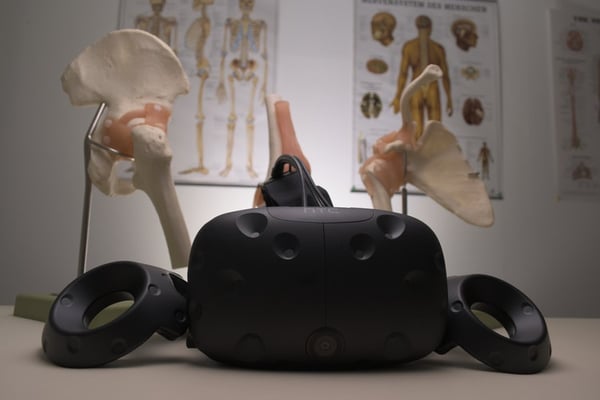
5. Virtual Reality
Both virtual reality and augmented reality have been used in an increasingly high number of surgical operations to assist doctors and surgeons with picturing what they're doing. Both of these device types provide the surgeon wearing the device with a three-dimensional image of the patient, which allows them to operate more efficiently and effectively. These devices are also being used to help medical trainees visualize what they're doing.
It's believed that this technology will soon be used in place of cadaver labs within medical schools. Virtual reality devices were first used for neurology and ophthalmology in 2016 and have since expanded substantially.
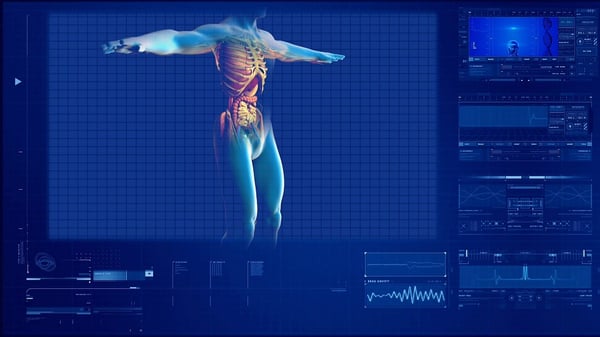
4. Artificial Organs
While standard 3D printing has been a spectacular innovation for the MedTech industry, bio-printing goes a step further and has even allowed for the placement of artificial organs. This is a more complex form of 3D printing that's able to fabricate biomedical parts through the combination of biomaterials, cells, and growth factors. The first stages of bio-printing solely allowed for the regeneration of skin cells to help burn victims heal more effectively. Since then, scientists have found ways to create synthetic ovaries, blood vessels, and a pancreas.
Once inserted into the patient's body, the artificial organ will grow and replace the damaged one. The best aspect of these artificial organs is that they aren't rejected by the immune system, which has the potential to save millions of lives in the future.

3. Needle-less Diabetes Care
For many diabetics, among the most frustrating aspects of managing their disease involve drawing blood with glucose testing and taking insulin shots on a daily basis. A company known as Echo Therapeutics is looking to eliminate needles in self-care for diabetes through the creation of a trans-dermal biosensor known as the Symphony tCGM. This patch is able to read and measure the blood without drawing any blood and can provide a reading every minute. If the data isn't optimal, a warning is sent to the patient.
2. Transcatheter Aortic Heart Valves
Among the largest and most reputable MedTech companies in Southern California is Edwards Life Sciences. One of their latest developments is the Sapien transcatheter aortic valve, which is an amazing alternative to open-heart surgery. This valve can be administered to patients who require a new valve but aren't able to physically endure the complex nature of an open-heart surgery.
As opposed to the intensive nature of open-heart surgery, these valves can reach their intended destination through a small incision that's made around the rib cage. The valve is then taken through the femoral artery by a catheter and is inflated once it reaches its intended destination. This is a minimally-invasive and life-saving procedure that allows for a quick recovery.

1. Digital Healthcare Services & Telehealth
Today's world is driven by technology, which is why the majority of people prefer digital services that can be conveniently accessed whenever necessary. The creation of digital healthcare services and telehealth has allowed the medical industry to provide much-needed medical care to patients through digital devices, which means that a patient can obtain medical care without waiting to book a face-to-face appointment.
This technology is improving with each passing day and is already available through a variety of personalized mobile applications. Patients can speak with their physicians to receive a quick diagnosis and helpful medical advice when needed, which is particularly beneficial for people who are managing long-term health conditions. This technology will only improve from here on out.
Conclusion
Recent innovations in Medtech have not only helped accelerate the growth of the industry but have also helped create technology that will improve the lives and medical care for generations to come. As technology grows and our capability to offer less expensive, safer, and more successful medical care -- the Medtech industry will prove to be a fruitful for all parties involved and an exciting venture for both startups and industry leaders alike!
Revised 11/18/2020




